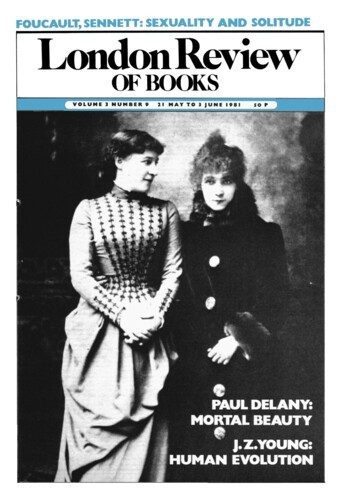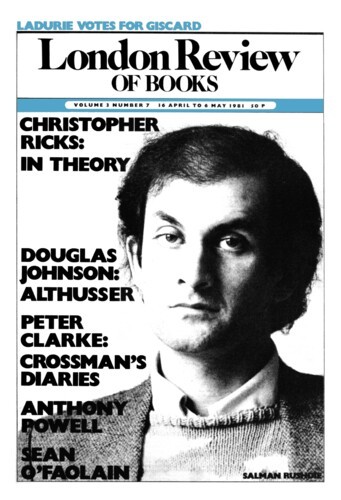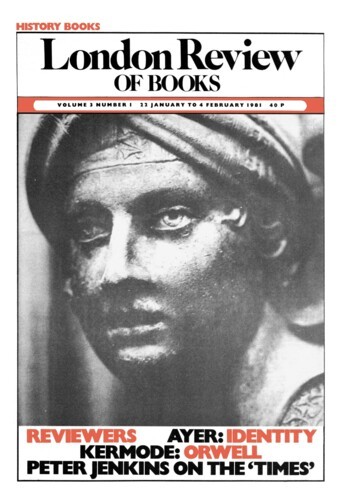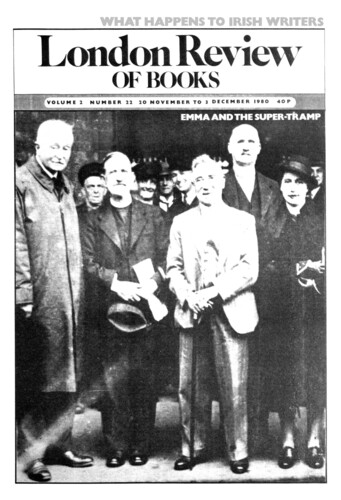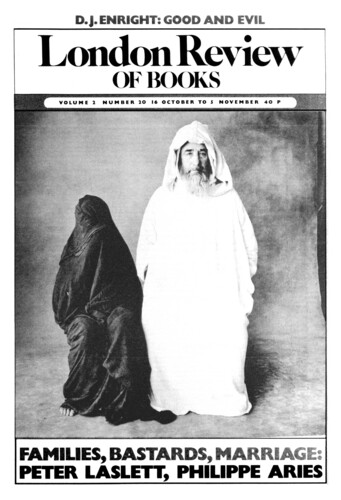Jane Austen’s Latest
Marilyn Butler, 21 May 1981
‘There would be more genuine rejoicing at the discovery of a complete new novel by Jane Austen than any other literary discovery, short of a new play by Shakespeare, that one can imagine.’ Brian Southam begins his Introduction to ‘Grandison’ by quoting the apparently prophetic observation of Margaret Drabble in 1974. Ever since she said it, there has been a run of near misses or all-buts, beginning with Another Lady’s completion of Jane Austen’s fragment ‘Sanditon’, and continuing with someone else’s notion of ‘The Watsons’. Then, in the autumn of 1977, there was an Austen discovery, not of a novel but not of a fragment either – a complete new play, apparently Jane Austen’s version of a work she had admired from childhood, Samuel Richardson’s Sir Charles Grandison.
